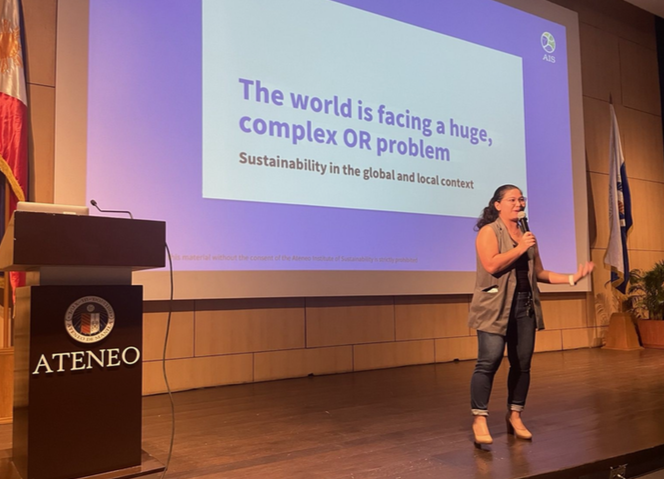
The Ateneo de Manila University (ADMU) hosted the ORSP Technical Forum on September 7, 2024, under theme of Environ- mental Sustainability. Held in the Leong Hall, the forum attracted a vibrant gathering of around 200 participants from a diverse array of institutions, including Ateneo de Manila University, Cavite State University, UP Diliman, UP Los Baños, Asia Pacific College, TIP Manila, Holy Angel University, and De La Salle University. The event kicked off with a heartfelt welcome from ADMU Professor Kerish Villegas, setting an inclusive and inspiring tone for the day.
The forum featured three distinguished speakers who shared their expertise and innovative approaches to sustainability. First speaker was Marimar E. Baticulon, who is Program Head of Organizational Sustainability, Ateneo Institute of Sustainability. Entitled “Sustainable Operations at the Core of Responsible Businesses”, her talk emphasized the critical role of integrating sustainability into business operations. By highlighting real-world OR applications, she showed how sustainable practices can enhance efficiency, reduce costs, and build resilience, thus demonstrating their positive impact on the economy, society, and the environment. She encouraged everyone to embed sustainability into their organizational frameworks and shared strategies for this.
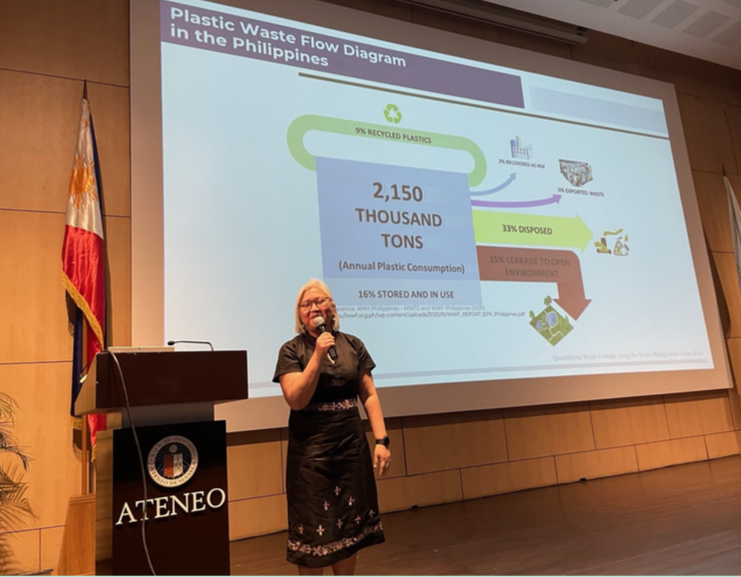
Dean of the UP College of Engineering and Professor, Institute of Civil Engineering Maria Antonia N. Tanchuling, PhD, delivered a talk on “Quantifying Waste Leakage along the Waste Management Value Chain”. She touched on how a study of the composition of microplastics in rivers within the National Capital Region that flow into Manila Bay and Laguna Lake helps determine where waste management interventions should take place, starting with the waste management practices of local government units. Dr. Tanchuling emphasized the importance of baseline data in waste management. She introduced the WASTE Wise Cities Tool and Waste Flow Diagram as essential tools for assessing solid waste management. Her discussion underscored the necessity of monitoring interventions and implementing robust data manage- ment systems to ensure transparency and accountability in waste reduction efforts.
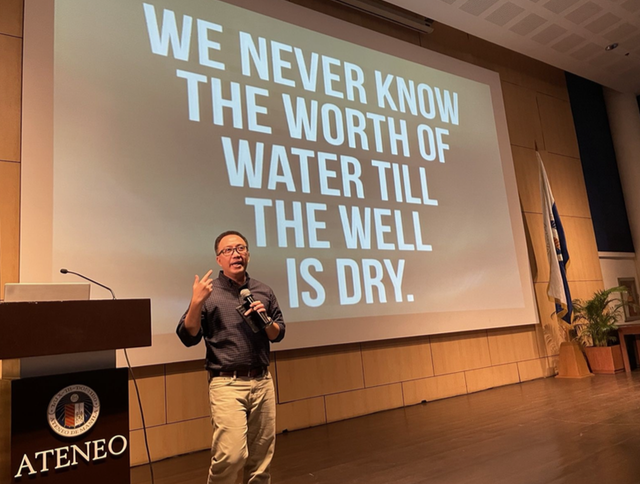
Dennis E. Cruz, PhD, Professor, Industrial & Systems Engineering Department, De La Salle University, delved into the concept of the water footprint (WF) and its signifi- cance in supply chain management with his talk entitled “Water Footprint Consideration in Supply Chain”.
He explained WF’s three components—green (rainwater), blue (surface and groundwater), and gray (freshwater needed to dilute pollutants). After pointing out that WF is a better and broader perspective on how freshwater was consumed by a producer or consumer of a product because it involves both water consumption and pollution, he illustrated how it can both mitigate the impact of water scarcity and can be used to address environmental related problems. He explained in detail three OR models using biobjective optimization that integrates WF into supply chain decisions which balance cost minimization and sustainable water usage that foster eco-friendly business practices.
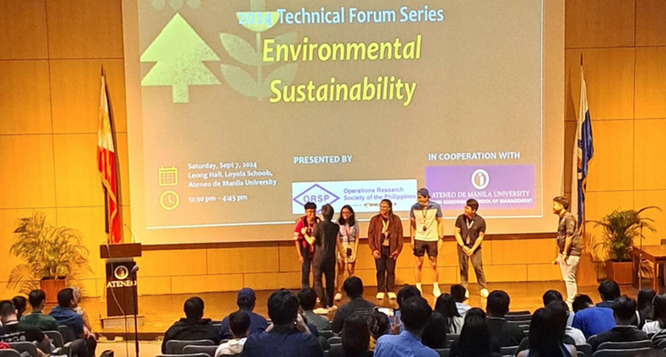
The seamless registration and engaging games were expertly managed by a team of dedicated Ateneo students, led by Teodoro Labitoria of the Management Engineering Association (MEA). To maintain a dynamic and interactive atmosphere, participants enjoyed a game and had the chance to win raffle prizes. These activities not only provided a fun break but also facilitated networking and collaboration among attendees.
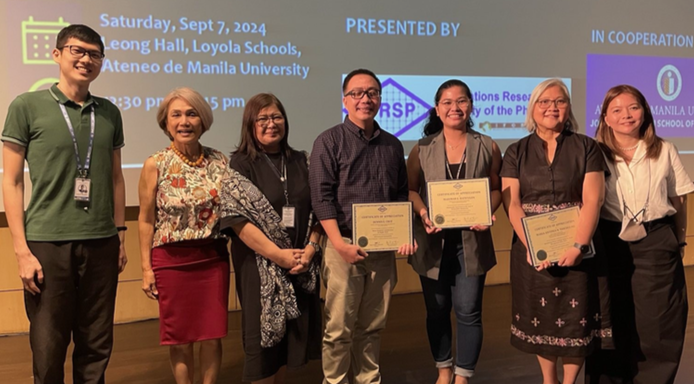
The ORSP Technical Forum concluded with attendees empowered with new insights and practical methodologies for advancing sustainability in their respective fields. The forum effectively combined learn- ing with interaction, leaving participants with valuable strategies and inspiration for driving sustainability forward.
Organizers hope that the forum emphasized the importance of integrating sustainability into core operations—not as a fleeting trend, but as a critical evolution for responsible businesses and institutions. This shared commitment is expected to contribute to ongoing efforts toward a more sustainable and resilient future.
